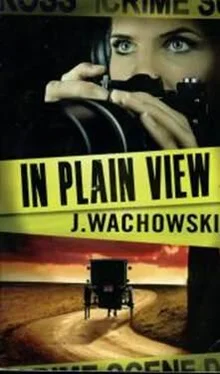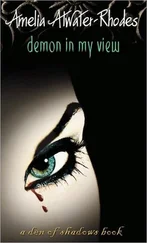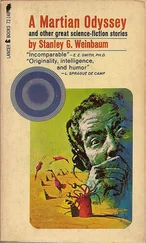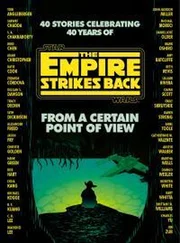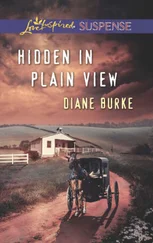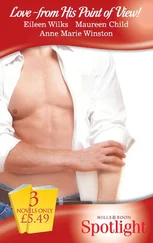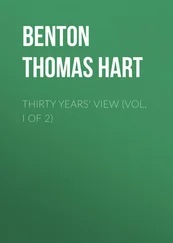“It’s marked Deliveries Only.”
“I know.” I gave the boy a friendly shot to the arm. “Good reason to go see the sheriff. We’ll ask for a press pass.”
Ainsley looked a little bug-eyed, but he didn’t argue.
I think he was getting used to me.
Inside the town hall, the air was old-stone cooled. We followed a clump of modern signs glued to the marble, directing us to the sheriff’s office. The place was bustling with activity. Folding tables were set up with handouts, balloons, people educating the citizens about programs for recycling hazardous waste, invader bugs eating local trees and how to fingerprint your kids for their protection.
The hallway swarmed with people, dressed casually and talking loudly, many using the building as a cut through to the park area out back. A pair of kids darted around us with balloons in tow.
“Ainsley!” a woman in a suit called from across the hall.
College hissed something under his breath, then answered her with a big, welcoming smile. “Hi, Mom.”
That turned my head.
“Maddy O’Hara meet Phyllis Prescott, my mother,” Ainsley coughed, “the mayor-elect.”
“How do you do?” I said. What else is there to say to a mayor-elect?
“I’m so glad you came to our little celebration today, Ms. O’Hara. You are planning on taking a tour of the mayor’s office, I hope?” Phyllis Prescott struck me as the kind of woman who maintains a narrow standard deviation of appearance. Her hair was a widely available chemical gold, styled and sprayed solid. Nice open smile, decent handshake. She wore slacks with a suede jacket that sported appliqué leaves, pumpkins and Indian corn.
“Ainsley was saying perhaps you could arrange a special tour for us?” I smiled at our college boy. He was not an idiot; he encouraged her with a nod.
“Did he?” She looked pleased. “Well certainly. I’d enjoy that. I’m busy for at least another hour. But hopefully we can meet-”
There was a shout and a sudden interruption of feet pounding toward us, echoing against the stone up into the high-ceiling hallway. My heart jumped. Low threshold for startle response.
A big teenage boy in Amish clothes shoved past us, bumping Mrs. Prescott against a table in his hurry. “Pardon, ma’am,” he called.
“Hey!” Ainsley called, steadying his mother with one hand.
I caught a bright line of blood down the boy’s face, from his nose to his chin. He didn’t stop. He sprinted toward the bright light of the main doors, lunging around the crowd toward the exit, like a critter on the wrong end of the hunt. His fan club appeared down the other end of the hall. There were five of them.
The Amish boy had already cleared a path through the crowd, so the boys chasing him were able to move quickly up the hall.
It flashed through me so fast, I couldn’t say how I went from angry to action. I put my best boot forward and turned the boys running toward us into a split of bowling pins: three in front toppled, two in the back still wobbling.
Ainsley had stepped forward to shield his mother. I stepped back, swung my camera off my shoulder and started shooting photos.
“What the hell!”
“Quit taking my picture, bitch!”
“That’s enough!” Mrs. Prescott snapped. “You watch your mouth, mister, or you’ll be in more trouble than you can handle.”
As the two boys in front scrambled to their feet, a swarm of uniformed cops hustled up the hall. I hadn’t seen them coming, being too busy looking through the lens. All the men were very concerned about Mrs. Prescott and very un-concerned about the tumbled teenagers. One of the cops put a heavy hand at my back and directed me up the hall toward a door labeled Sheriff’s Department.
We all trooped past the front desk, to an open desk zone, full of busy people and the constant under-hum of electronic services: a scanner, two-way radio buzzer going off, telephones. The usual. Felt like a newsroom to me-except the men were more butch.
The Amish boy had been nabbed as well. He was sitting in a wooden armchair, with a paper towel full of ice melting against his nose. He looked like a kid waiting to see the principal.
“I’d better go with Maddy,” Ainsley told his mother after the paperwork had been organized. She waved him on, deep into a tête-à-tête with one of the officers. Sounded like the boys would be picking up tot-park litter until they graduated college if she had her way. Power used for good is so appealing.
Curzon appeared in the doorway next to where the Amish kid sat waiting. He stepped back and thumbed the kid into his office. Before he shut the door, he shot a glance my way.
Guess who was next for the principal’s office?
“You still plan on asking Curzon for a press pass?” Ainsley sounded sorry for me.
“Sure. No harm in asking,” I answered. “So your uncle runs the local television station and your mom is the mayor-elect. Any other family members you want to tell me about?”
“Um…no?” Ainsley waved at one of the cops who’d raised a hand in greeting.
Shit, my boy was better connected than a Daley democrat.
I crossed my arms and propped my butt against the desk behind me. “What does being mayor-elect get you in this town anyway?”
“A parking place. Free rides on fire trucks.” He smoothed his sunny hair back off his brow with a casual brush that mimicked a cartoon whew. “Oh, and a cable television show.”
“Maybe I should ask your mom for the press pass.” I would have laughed out loud if there weren’t men everywhere. “Cable, huh?”
“Everybody’s got to start somewhere.” He stuffed his hands in his pockets, elbows locked.
“What’s it called?” I asked.
Cable shows are the pulp fiction of television. I concede a secret fascination for them.
“One Heartbeat Away.” Ainsley’s grin stretched another inch. He cocked a shoulder in half-a-shrug. “I was into Tom Clancy at the time.”
The sheriff’s office door opened and the Amish boy shuffled out, Curzon behind him. The boy was hunched over, elbows pressed to his sides, the brim of his hat clutched between his hands as if that black anachronism were the lifeline to his identity.
Curzon pointed toward the way out. A man in uniform with a freshly shaved skull guided the boy away. Curzon’s back was to me. That world-weary slump wasn’t his usual stance. One hand came up to rub his forehead, in that classic masculine indication of simultaneous feeling and thinking. Always looks to me as though it gives them a headache. Suddenly, he snapped around to look at me. I expected hostility, but his expression was mostly wary, as if he wondered what do you see?
I didn’t look away which was the only answer I knew.
The things we see change us. I know this in my bones as much as in my head. I wouldn’t do what I do, if I didn’t believe it. That old saying, “the eyes are the window to the soul,” means more than just a view from the outside; it’s a way to enter someone’s soul, as well.
The thing is, Sheriff Curzon and I probably had a lot in common. We both made a living walking through shadows looking at stuff nobody wants to see. Neither of our souls were all that shiny anymore.
Of course, when I felt threatened and shot at things in the dark, nobody died.
The sheriff signaled get in here with a snap of his head. I waved back.
“I’ll go with you,” Ainsley said.
“Oh, most definitely,” I replied, grabbing a handful of his jacket above the elbow to keep him close.
Curzon held the office door open and I slipped past. Ainsley was stopped at the threshold.
“Rick,” Curzon called. “Show Prescott’s kid the break room.”
Rick was the skinhead cop who’d escorted the Amish boy. He had a chest circumference that would have matched Ainsley’s and mine combined. I could feel his voice, like bass notes through a subwoofer, when he reverberated, “Do they let you drink coffee yet, kid?”
Читать дальше
